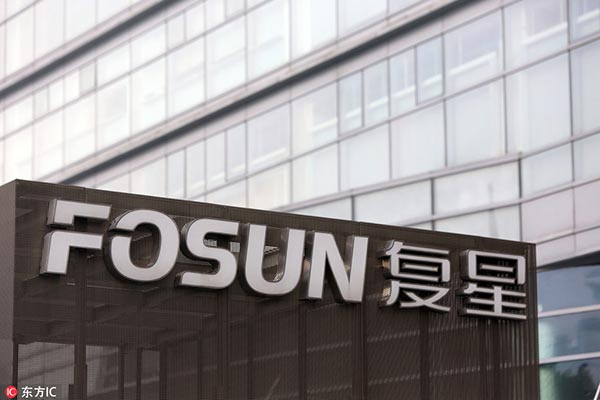High-speed rail on public-private partnership track


The first privately controlled high-speed railway line in China received approval to set up eight stations in early June and construction is expected to wrap up in 2021, according to a senior executive from a major shareholder in the project.
Backed by Shanghai-based conglomerate Fosun International Ltd, the Hangzhou-Shaoxing-Taizhou line will stretch 269 kilometers across the central and eastern parts of East China's Zhejiang province. So far, the project has attracted total investment of 44.89 billion yuan ($7 billion).
As a public-private partnership project, the cooperation agreement lasts for 34 years, the first four years of which will be spent on construction, followed by 30 years of management. A consortium of private companies, lead by Fosun, will hold a controlling 51 percent stake in the project.
Wen Xiaodong, Fosun global partner and president of Fosun Infrastructure Group, said the line will help to boost the economy in Zhejiang and even neighboring areas in the Yangtze River Delta region.
He said investment in infrastructure projects such as the high-speed railway lasts for a longer period of time and generates less profit than other ventures, but, all these aspects are within the group's expectations. More important, he said, is such projects' social value, on which Fosun places high emphasis.
Still, Wen said, Fosun is able to integrate its other businesses, such as retail and tourism, into infrastructure projects.
"Local governments and China Railway Group Ltd have allowed private investors to get involved because privately owned enterprises have shown higher investment efficiency. With this, public utilities are likely to be managed in a commercial way and privately owned enterprises' integration ability can allocate resources more rationally," Wen said.
With extensive investment in overseas markets, Wen said that Fosun will bring the country's expertise in high-speed trains to North America, Europe and Southeast Asia. The group will prioritize the countries and regions involved in the Belt and Road Initiative when it comes to exporting China's high-speed trains, he said.
"High-speed rail has become an important part of Fosun's industrial strategy. With the group's diversified business portfolio, we will look globally for investment opportunities in high-speed rail, subways and trams," he said.
According to Wen, Fosun will invest up to 100 billion yuan in the next decade in scientific research to respond to Shanghai's aim to build itself into a global science and innovation center. The major areas the huge investment will focus on include pharmaceutical, healthcare and smart technologies. Fosun will also look into infrastructure industry represented by railway transportation.
Fosun teamed up with Southwest Jiaotong University in late April to apply more newly developed technology for the railway sector in real-life scenarios. Such cooperation is set to expand in Shanghai to explore opportunities to develop urban transportation hubs and renovate old stations, Wen said.
Fosun announced it will set up a joint venture with United States engineering firm AECOM in late May to specialize in the general planning, design and development of metro stations and urban complexes in China.
"As Fosun deepens its investment in infrastructure, we have realized that we should look afar and explore new paths to seek substantial and sustained growth in this sector. We should be armed with the mindset and ability to develop the entire supply chain," Wen said.




































